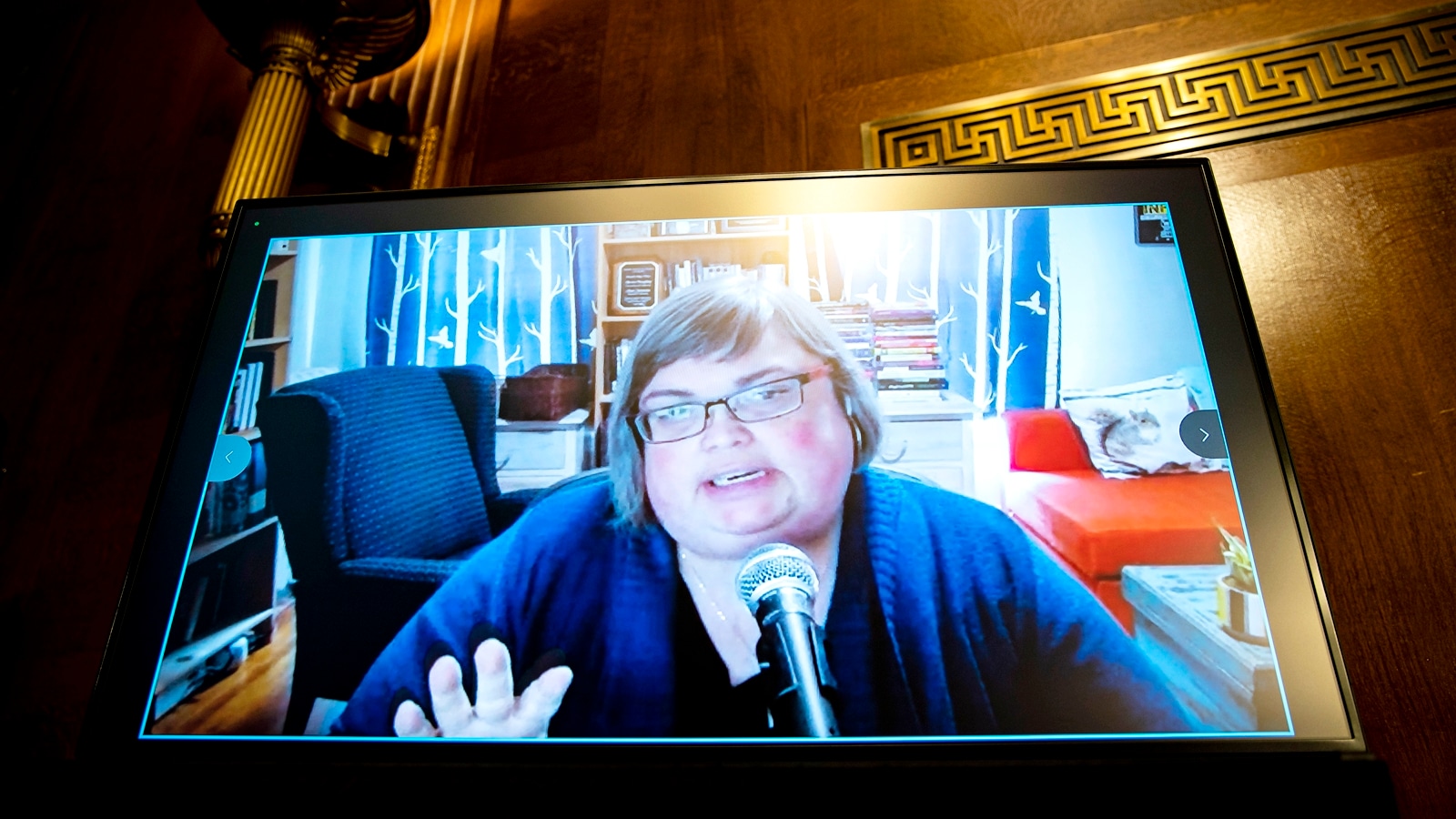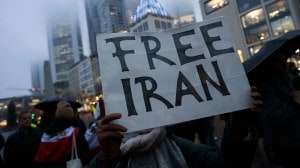Harvard scholar says she was pushed out due to pressure from Facebook
Joan Donovan accused Harvard University of bowing down to pressure from Facebook. Mark Zuckerberg and Priscilla Chan ’07 pledged $500 million to Harvard University's AI institute.
 Joan Donovan, then-research director of the Shorenstein Center on Media, Politics and Public Policy, speaks remotely during a hearing of the Senate Judiciary Subcommittee on Privacy, Technology, and the Law, on Capitol Hill, April 27, 2021, in Washington. (Al Drago/Pool Photo via AP, File)
Joan Donovan, then-research director of the Shorenstein Center on Media, Politics and Public Policy, speaks remotely during a hearing of the Senate Judiciary Subcommittee on Privacy, Technology, and the Law, on Capitol Hill, April 27, 2021, in Washington. (Al Drago/Pool Photo via AP, File)A misinformation scholar accused Harvard University of shutting down her project and dismissing her due to pressure from current and former Facebook executives. Joan Donovan filed a complaint with the US Education Department and the Massachusetts attorney general, accusing her supervisors of sacking her as Harvard was getting a $500 million pledge from Meta founder Mark Zuckerberg.
Donovan was the research director of Harvard Kennedy School projects that looked at misinformation and disinformation on social media platforms. She had raised millions in grants, testified in front of Congress, and has even been a frequent commentator on television reports Washington Post, which first broke the story.
In 2023, the school’s dean told her that she was winding down her main project. This year, it eliminated her position in a move that surprised other researchers in the field. Donovan’s claims began with the 22,000 pages of Facebook internal documents leaked by whistleblower Frances Haugen.
Donovan believed the leaks to hold great public interest and began publishing them to Harvard’s website where anyone could access them. “From that very day forward, I was treated differently by the university to the point where I lost my job,” said Donovan to The Logic.
Harvard is arguing strongly against Donovan’s claims. “Allegations of unfair treatment and donor interference are false. The narrative is full of inaccuracies and baseless insinuations, particularly the suggestion that Harvard Kennedy School allowed Facebook to dictate its approach to research,” said James Francis Smith, a Harvard spokesperson to CNN.
Donovan often came out all guns blazing against powerful social media platforms, accusing them of profiting from the spread of divisive misinformation. During a virtual meeting of the Kennedy School’s dean council on October 29, 2021, Donovan presented the school’s top supporters on “Curbing the Damage Caused by Misinformation.
One of the members present during the meeting was Elion Schrage, the former head of policy at Facebook. Schrage aggressively argued against Donovan’s work, according to Semafor. He put forward the argument that the platform should not be the “arbitrer of truth and falsity” and that journalists and academics often tag politicians they don’t like as “misinformation.”
Around a week later, Douglas Elmendorf, the school’s dean, emailed Donovan asking her to justify her approach to researching misinformation in a climate “when there is no independent arbitrer of truth and constitutional protections of speech in many countries”.







